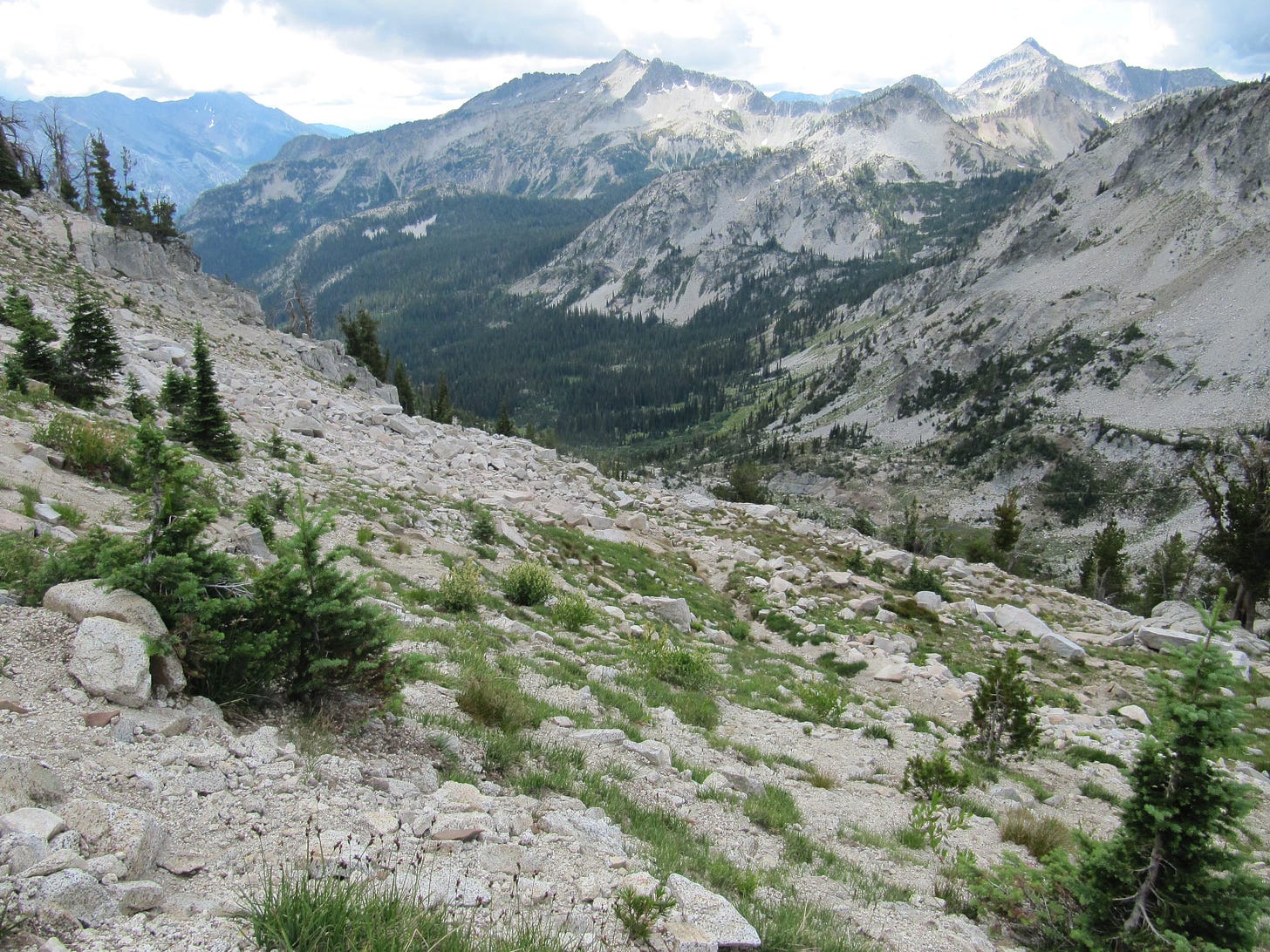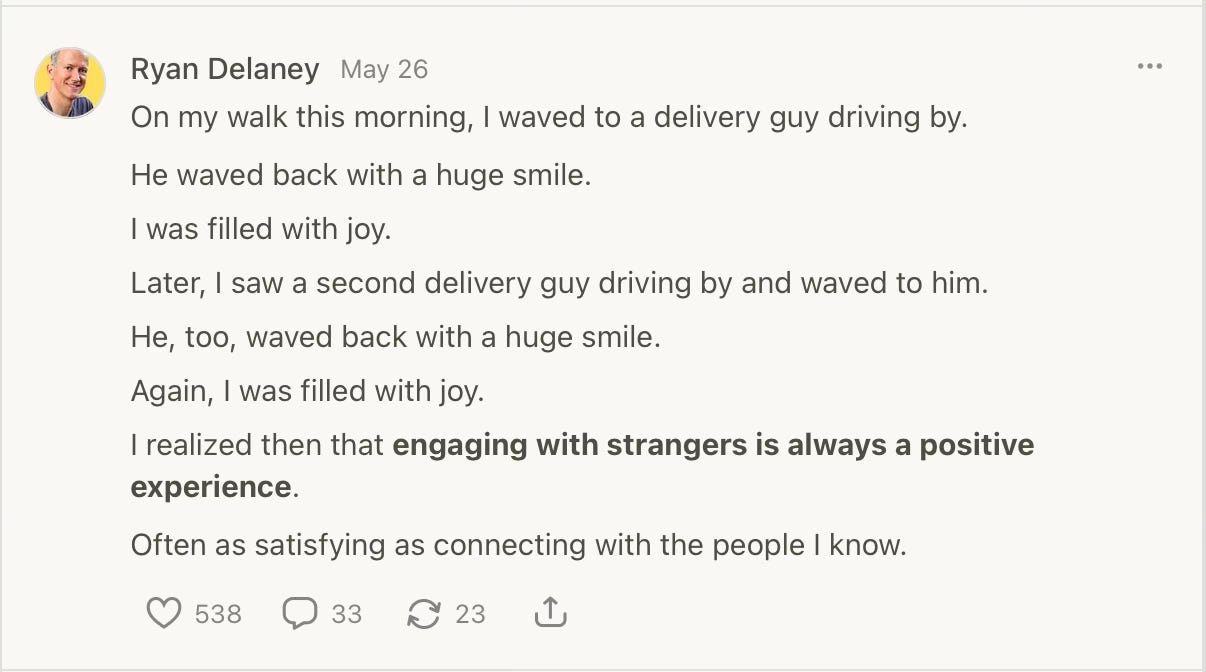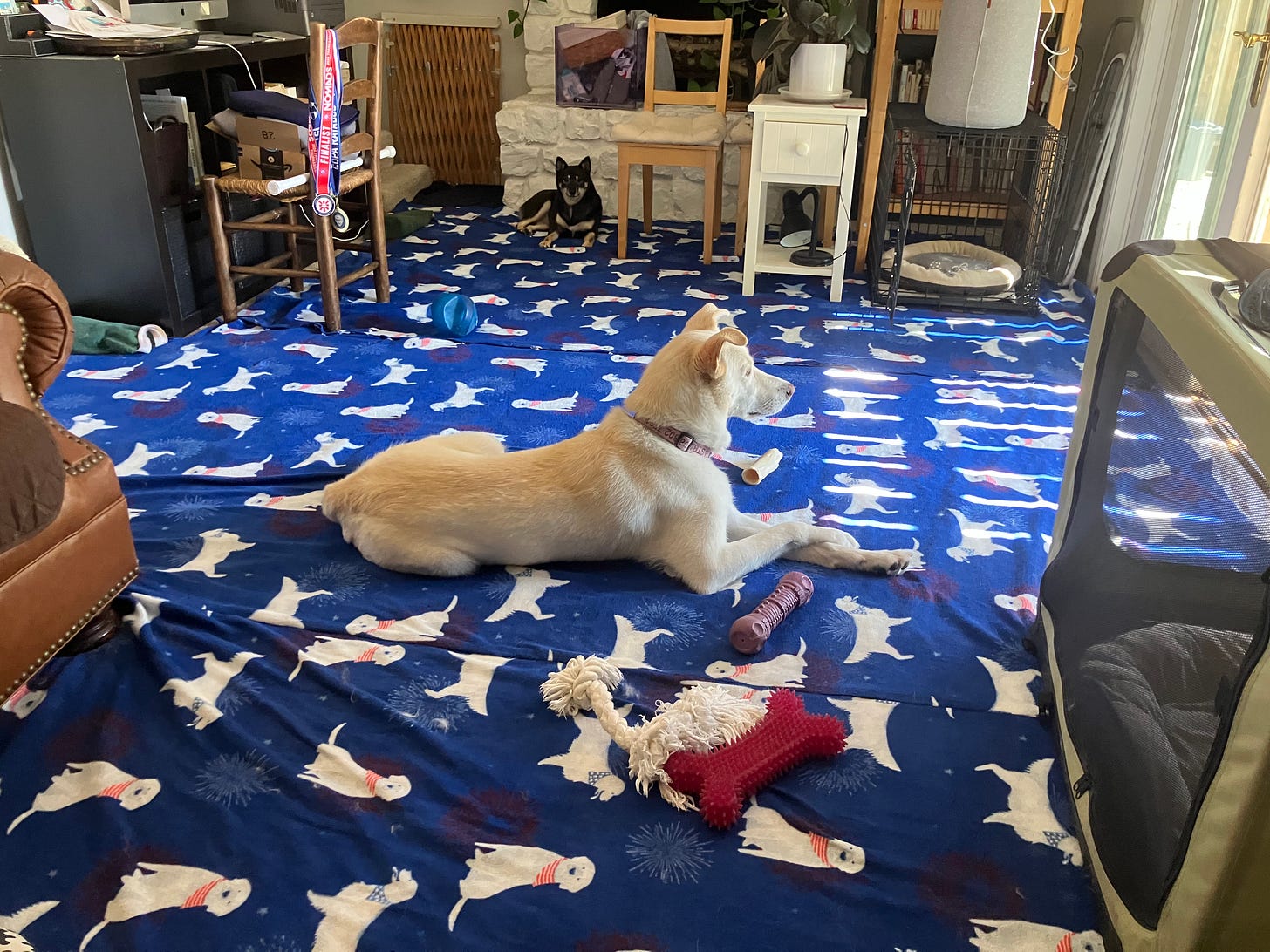The Loneliest Era in Human History
Why the comfort of convenience leaves us more isolated than ever
Welcome to Beyond Self Improvement issue #131. Every other Wednesday, I share an essay with practical ideas on finding personal freedom in an unfree world.
Dear Friend,
In 2023, the U.S. Surgeon General declared loneliness an epidemic, as deadly as smoking fifteen cigarettes a day. Nearly one in two American adults now says they feel lonely regularly.
That rise isn’t random. In the last decade, daily screen time has doubled. Teen loneliness and depression began spiking in 2012, the same year smartphones hit mass adoption. The paradox is evident: the more connected we are digitally, the more isolated we feel psychologically and emotionally.
How did we get here?
Twenty years ago, Apple sold us a dream: a world perfectly tailored to me. iPods, iPads and iPhones. Everything you want and nothing you don’t.
It worked. Life got quieter, smoother, easier. Headphones blocked out the noise. Spotify delighted our ears. Netflix entertained us without leaving the house. Dinner showed up in a bag at the door. A quick thank you at best, hurried and hollow, nothing like sitting in a restaurant, looking a server in the eye, and asking what they recommend.
We called it convenience. Comfort. Freedom from petty annoyances.
But look closer. The same bubble that cuts out irritation also cuts out people. And people—quirky, unpredictable, frustrating as they may be—are also hilarious, creative, and kind beyond measure.
When we avoid people, we don’t just bypass awkwardness. We do away with the very connections that make life rich, meaningful and worth living.
Everyday Isolation
You don’t have to look far. Isolation is everywhere once you see it.
On the street, people still step into the road instead of making eye contact and greeting one another, as if COVID allowed us to avoid each other indefinitely.
Restaurants sit half-empty, the clatter of silverware and conversation replaced by the emptiness of takeout bags.
In elevators, we stand shoulder to shoulder yet stare into our phones.
On buses and trains, headphones block out the noise along with chance encounters.
At coffee shops, laptops wall off people from each other.
Face-to-face doctor's visits replaced by Zoom. Workouts alone in garages (guilty!). AirPods act as do-not-disturb signs. Even grabbing coffee without talking with a barista.
And yet sometimes the spell breaks. A neighbor says hi. A cashier lights up when you ask about their day. For an instant, the world softens. You leave lighter and so do they.
Forgetting How to Be Human Together
The danger isn’t just loneliness. It’s forgetting how to be human together.
My 19-year-old stepdaughter lamented over dinner last week that when she’s with her friend groups, the conversation sometimes trails off. Long awkward silences where nobody knows what to say. She wonders if it's a friend thing or something else.
She’s not alone. A generation that grew up on screens is discovering that even when they’re face-to-face, connection can feel stilted.
When did being together start to feel so unnatural?
Think about it: most of our daily lives are mediated through devices. We text instead of calling. We tap an app instead of talking to a clerk. We swipe on profiles instead of striking up conversations. We Slack or DM colleagues instead of dropping by their desk. Little by little, we’ve lost the muscle memory of simple human contact.
If we want connection, we have to create it. It doesn’t happen by chance anymore.
Without it, isolation turns us into strangers in our own world—isolated, disconnected and unseen. The worst pain isn’t grievances with people. It’s the ache of loneliness and the emptiness of feeling invisible.
Spiritual Wisdom
Jack Kornfield once warned: “If we are not careful, we can easily find the great failures of our modern society—its ambition, materialism, and individual isolation—repeated in our spiritual life.”
Kornfield meant it as a warning about spirituality, but it speaks to life as a whole. If we’re not careful, isolation seeps into everything, even the small daily moments that used to bring us together and enrich our lives.
Zen Master Dōgen put it more simply: “To be enlightened is to be intimate with all things.”
And intimacy isn’t possible from within a bubble. It asks us to show up as we are. To risk the awkward moment. To allow interruptions. To be surprised. To let people in.
That’s the irony: what we often try to avoid in human connection is the very thing that makes life alive, satisfying and sacred.
The Mountain
Not long ago, I went backpacking in the mountains. The trail climbed steeply through a boulder-strewn bowl until it opened to a windswept saddle. Two guys were resting there, catching their breath. We talked for a few minutes before my friend and I continued toward the summit.
At the top, the air was crisp, and the sky stretched wide in every direction. Soon after, the two men joined us. We stood together at the top, trading stories while the sun shone and the wind blew. My friend teased me for talking so much, but I was unconcerned.
The mountains were glorious—the ridgelines against the sky, the stillness of the lakes, the smell of sage and pine. I need that in my life. But when I think back on the day, it’s not the view I remember most. It’s the people I met.
A mountain can awe you, but it can’t connect with you. A flower can stop you on the path, but it can’t leave you feeling seen. A clear mountain stream can captivate you, but it can't satisfy your hunger for contact. Only another human can do that.
It's the People
We chase contentment in accomplishments—money earned, titles collected, ladders climbed. But none of it can replace the deeper sense of aliveness of human connection.
The greatest joy in life isn’t reaching the summit. It’s the people we meet on the path, and the meaningful moments we forge along the way.
If this resonated, consider sharing it with someone who needs to hear it. We all know a people-pleaser who's secretly suffering.





Thank you, Ryan, for writing this.
I moved house recently to a bigger place with a high wall in front on my house. I thought, great, privacy, I can do yoga out the front and sit in my Pj's drinking coffee. Then I started to miss the comings and goings of living on a terraced street. I soon began to feel the aches, and esp being home recovering from surgery and not being able to drive for weeks. I asked my doc for antidepressants, she said to treat the isolation first. I've let out two rooms to students now and have been sleeping better just knowing there's people in the house and the chats about their days. I bought a season ticket to my nearby cinema and have adopted going for a walk every evening after dinner. Meeting people I didn't even know were my neighbours. I also joined a choir, singing with 130 people really lifts your spirits. At this moment, I'm happy sitting looking out the window, but will soon leave the house to go be in the world. We can make small changes, like you say, smile and say hello. 👋
Thank you, Ryan. Playing second to a screen is an especially cutting pain that most of us experience on the daily. Stop the madness before it kills us with loneliness!